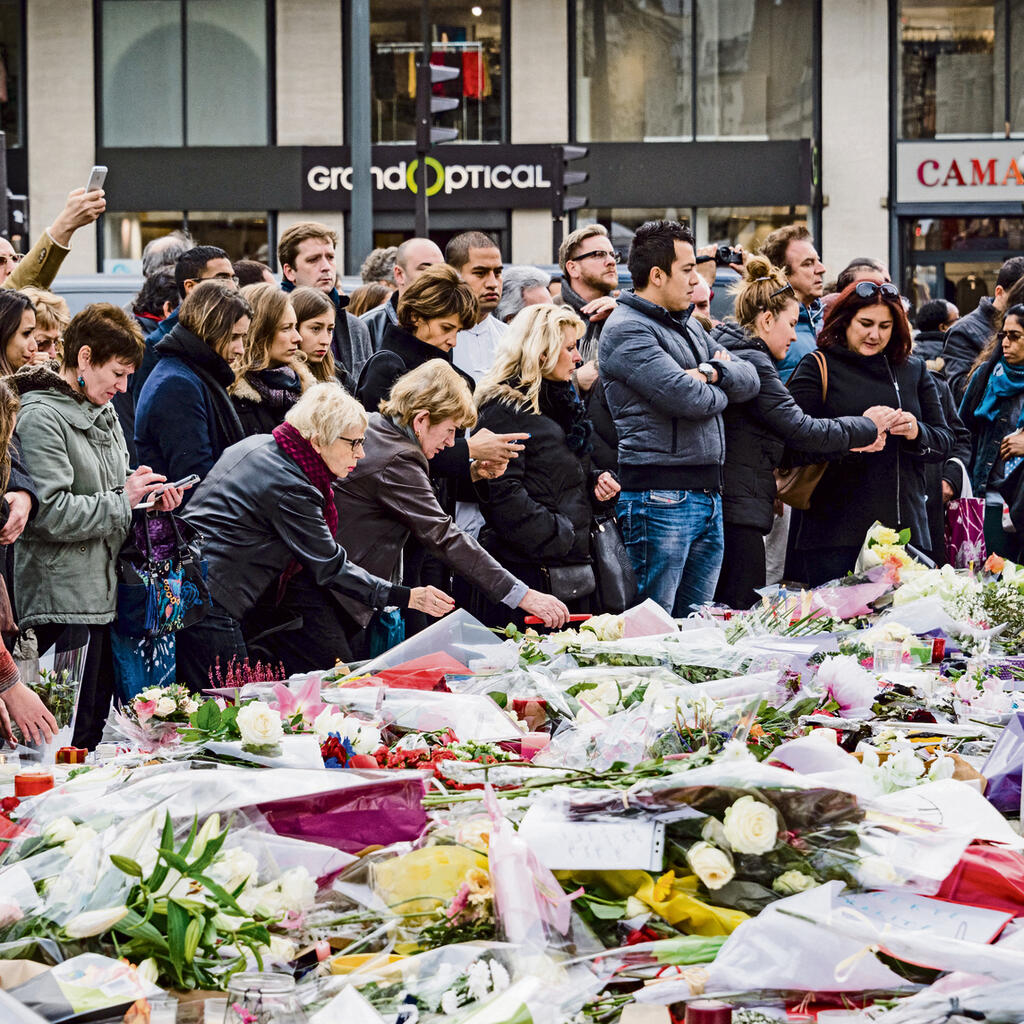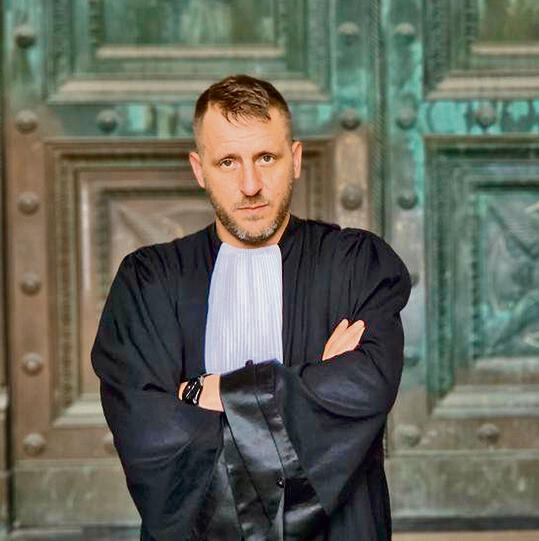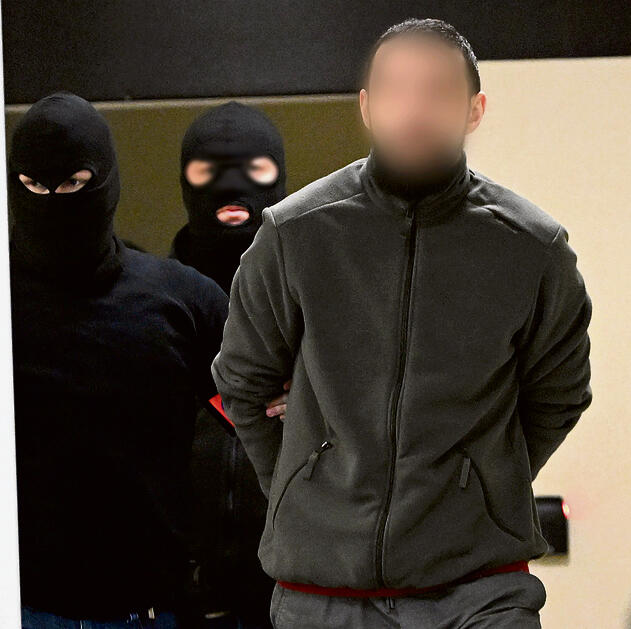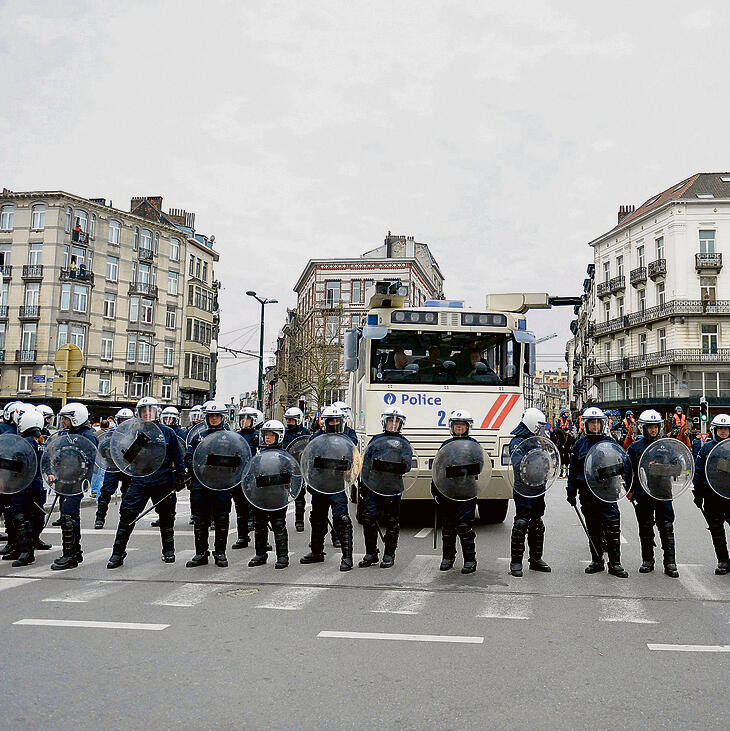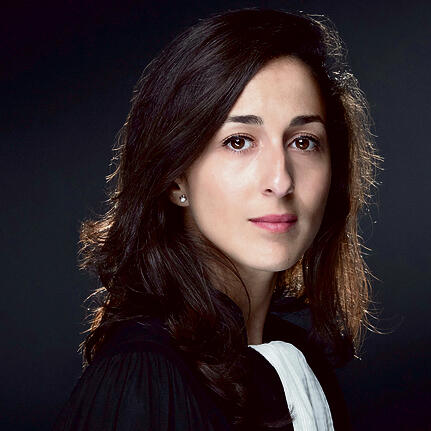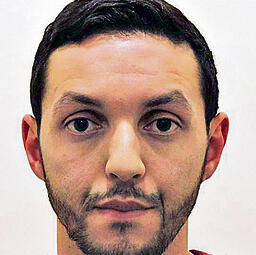Getting your Trinity Audio player ready...
Stanislas Eskénazi, a Belgian lawyer, is navigating the streets of Brussels with his daughters in tow. After dropping them off at their respective destinations, he makes his way to the prison to meet with his client, Mohammed Abrini.
Abrini had been sentenced to life imprisonment, with a minimum of 22 years, for his involvement in the heinous terrorist attacks on November 13, 2015, at the Bataclan concert hall, outside the Saint-Denis football stadium, and in various cafes throughout Paris.
The coordinated attacks left 130 people dead, with 413 injured, 99 of whom sustained serious injuries. The impact of the attacks was widespread, affecting everyone from the survivors and their families to friends and members of the security forces.
Abrini is currently facing trial in Belgium for his role in the March 22, 2016 attacks on the Brussels subway and Zaventem International Airport, where he had intended to carry out a suicide bombing but backed out at the last moment.
Eskénazi proudly introduces his daughter to the camera on his cell phone, remarking that she trains Israeli, Jewish, and Palestinian children in schools in Brussels to speak publicly like lawyers in a defense speech.
He notes that she is well-versed in the Palestinian struggle, while also recognizing Israel's right to exist and not be subjected to massacres. Eskénazi's daughter has visited Israel on numerous occasions and, according to him, possesses greater wisdom than he did at her age, which elicits a chuckle from him.
Another Jewish lawyer representing a terrorist is Olivia Ronen. She's the lawyer for Salah Abdeslam, the only survivor from a terrorist squad who carried out attacks in 2015.
"I view Judaism as just one aspect of my overall identity," states 33-year-old Ronen. "Being a woman, French, and a lawyer are also integral parts of who I am. Moreover, my principles are something I am willing to fight for, and I believe they are more important than any religious differences.
"Ultimately, humanity is paramount. While I do not ignore or deny my Jewish heritage, I refuse to exclude those who hold different beliefs from the conversation. I see this as an opportunity to engage in dialogue and reintroduce those who reject Jews, the legal system, and the Western world back into the realm of shared values.
"If we want to maintain our society, we must communicate with them. There is no inherent contradiction between the two goals."
How the attacks unfolded
On November 13, 2015, three Islamic terror squads carried out a series of coordinated attacks throughout the French capital. The first squad consisted of four terrorists who detonated explosive vests outside the football stadium in Saint-Denis, located north of the city.
Simultaneously, another group of three terrorists went on a shooting rampage at various restaurants and cafes situated in the 10th and 11th districts. Ultimately, Brahim Abdeslam, the older brother of Salah, triggered his explosive vest in front of another cafe.
In addition, three other terrorists stormed the Bataclan theater, opened fire on the rock show audience and took hostages until French special forces carried out an after-midnight rescue operation.
All the terrorists who actively participated in the attacks either committed suicide or were eliminated during the operation.
Ronen states that her client, 33-year-old Salah Abdeslam, was responsible for driving the terrorist squad to the Saint-Denis stadium and was supposed to set off his explosive vest on the spot.
It remains unclear whether he regretted his actions or if the bomb simply malfunctioned. Ronen emphasizes that it is the prosecution's responsibility to prove any mistakes and asserts that her client has shown remorse.
Muhammad Abrini, 38, was convicted for his role in the planning of the Paris attacks. His brother, Suleiman, had gone to Syria to join a jihadist group and was killed there.
Abrini, who was in prison at the time for other crimes, also traveled to Syria in June 2015 to visit his brother's grave. It was there that he met a childhood friend who asked him for a money transfer to help finance the terrorist attacks.
Abrini then took part in the planning of the attacks in Belgium, and he traveled with the team responsible for carrying out the attacks in Paris. However, he returned to Brussels in a taxi, all by his lonesome.
Additionally, he was involved in the preparations for the attacks that occurred in the Brussels metro and airport in March 2016, and he is recognizable from the airport's security footage as the "man with the hat."
However, once again, he did not set off his explosive vest and instead made a one-eighty. Despite his involvement in the attacks, Abrini claims to have repented for his actions.
Eskénazi, in his defense speech, argued that Abrini is not guilty of actively participating in the terrorist attacks but rather of collaboration, a charge for which he was already tried.
Eskénazi went on to explain that cowardice is a human trait and that Abrini's reluctance to take part in the attacks only shows that he is rooted in reality. During the trial, Abrini expressed regret and shared with Eskénazi the horrors that the victims went through.
Not a single conversation passed between them where he did not express this sentiment.
How Jews find themselves representing Islamists
How did two Jewish lawyers end up defending threats from radical Islamists? According to Ronen, it all started with her love for criminal law. "The field is fascinating - it's packed with passion, emotion, psychology, and even aesthetics," she explains
After interning with Thierry Levy, one of France's most renowned lawyers, Ronen decided to test her skills in a tournament for young lawyers. The competition challenged participants to deliver compelling defense and prosecution speeches before veteran lawyers, a challenge she craved.
Ronen has a record of defending approximately 20 terrorist cases that varied in nature. She represented individuals who either returned from Syria, those who intended to travel there, or people who were involved in preparations for an attack or what's considered preparation.
According to Ronen, her results were quite positive, and she believes that her clients recognized her hard work and dedication. Her reputation began to spread by word of mouth, which is how Abdeslam came to hear about her. The meeting between them was successful, and they seemed to have established a good rapport.
Isn't it somewhat cynical for a radical Islamist to ask for a Jewish lawyer?
"Not everyone is aware that Ronen is an Israeli name. Only Jews seem to guess it. Many people actually think it comes from the Brittany region in France. The fact that I was chosen to represent Abdeslam wasn't necessarily due to my name becoming known later as Jewish, in my opinion.
"Regardless, my Judaism was never an issue between us."
Ronen decided to defend terrorists with the belief that a fair trial is essential for democracy to prevail. She noticed a shift in the terrorist landscape in France following the Charlie Hebdo incident, which led to an increase in warrants and indictments against terrorists.
The legal system was unprepared, rendering the process chaotic. Ronen saw this as an opportunity for defense lawyers to remind society of the importance of adhering to laws and regulations, even in terrorism cases.
She believed that the role of the defense attorney was crucial in upholding the principles of a democratic society.
Ronen has a strong connection to Israel, as evidenced by the Hebrew tattoo "Abigail", on her left forearm, her late sister who died at 28. Even when she talks with her hands, it's clear that her sister is always with her, highlighting the blend of her empathy and toughness when fighting for her clients.
Although she's only visited Israel once, it was a meaningful trip where she and her mother held a ceremony for her sister at the Western Wall and explored Tel Aviv and Netanya, where her parents met.
In contrast, Eskénazi has never been to Israel. His mother, who is of Turkish origin, moved to Belgium when she was eight years old. She had a career as a journalist at the national radio station, and also worked as a spokesperson for the Belgian Ministry of Defense. In addition, she was a human rights activist who was once arrested in Israel.
France's distinction between religion and state introduced Eskénazi to a novel perspective. The French believe that culture should not remain inactive and instead, endeavor to foster communication between the two ideologies.
Their aim is to avoid violence until the last possible moment and staunchly defend their principles. However, if the use of weapons is inevitable, they will not flinch.
Despite his sentiment that being a criminal lawyer is a rewarding and stimulating experience on an intellectual level, he says this is the last time he's representing a terrorist. "As a defense lawyer, I often find myself empathizing with the victims of the crimes my clients are accused of," he says.
"Their pain and suffering weigh heavily on my conscience, and I hold their trauma with deep respect. It is important to me that I never further injure them in my pursuit of justice for my clients.
"Balancing this empathy with the challenge of defending my clients is a delicate balance, but one that I am committed to as a lawyer. I fight hard to represent my clients to the best of my abilities, while always keeping in mind the human toll of their alleged actions."
With his background as a boxer when he was a teenager, Eskénazi speaks of the legal battle as a fight in the ring. "I am faced with opponents who are the plaintiffs, whom I challenge using all available tactics. The essence of this statement delves into the intricacies of human emotions and experiences.
"I endeavor to comprehend and convey the message that even the accused, regardless of being labeled as terrorists, are also human beings like everyone else. This, in turn, is my way of ensuring that justice prevails.
"Being a utopian, I had to endure the loss of a significant amount of money during my extended stay in Paris, coupled with intense longing for my family. After the trial, I have never felt so completely drained of energy."
Eskénazi says the road from being a regular civilian to a fully-fledged terrorist is paved by violent events they witness. "While smoking a joint with Al Jazeera playing in the background, you spend the day observing the Americans' desire to wage war in Iraq, only to discover that no nuclear weapons were found there.
"As the 'Cast Lead' operation unfolds, you are confronted with heart-wrenching images of children who perished due to bomb explosions. These images are staged to some extent and serve a specific purpose.
"Meanwhile, your friends express their willingness to participate in the fight in Syria and invite you to join them. Wouldn't you sign up?"
You said that under a different scenario, you and Abrini could've been friends. How so?
"As someone who grew up among individuals like them, I was not known to have pursued a career in law. When I visit them in prison, they mistake me for an inmate due to their lack of knowledge.
"I believe it is my duty to enlighten them and broaden their perspectives. It is evident to me that society has forsaken these young people who, out of laziness and their surroundings' influence, have arrived at irrational conclusions."
Was there a specific piece of testimony that rattled you during the Bataclan trial?
"During the five-week victim testimony period, I struggled with nightmares and overwhelming feelings. The testimony of a young Turkish engineering student, in particular, was vivid and challenging to process.
"Despite this, I continued to defend my client and engage in difficult arguments with the accused, Abdeslam and Abrini, who I had previously lived with for ten months."
Ronen says that during his time in solitary confinement, Abdeslam's armor began cracking. "It was evident that he was a complex individual with a normal life prior to the attacks. During the trial, we learned how and why he became involved in the story.
"Salah Abdeslam admitted that he chose not to detonate the bomb, and the experts weren't able to disprove him. His words had to be taken into consideration. If he had remained silent, the trial would have been vastly different.
"While I cannot speak for the victims, I could sense that Abdeslam's testimony gave them hope and helped them come to terms with their experiences. With the exception of one person who refused to forgive, everyone was stunned by his testimony."
What do you think about the judicial overhaul saga going on in Israel?
"Laws cannot be treated as a luxury. We can all find ourselves in complex situations, and it's wrong to authorize any component that centralizes authorities. That's why the demonstrations are important.
"The supreme court's powers must be retained at all costs. Among the three branches of government, it is the one that maintains the fundamental tents of a functional democracy."


